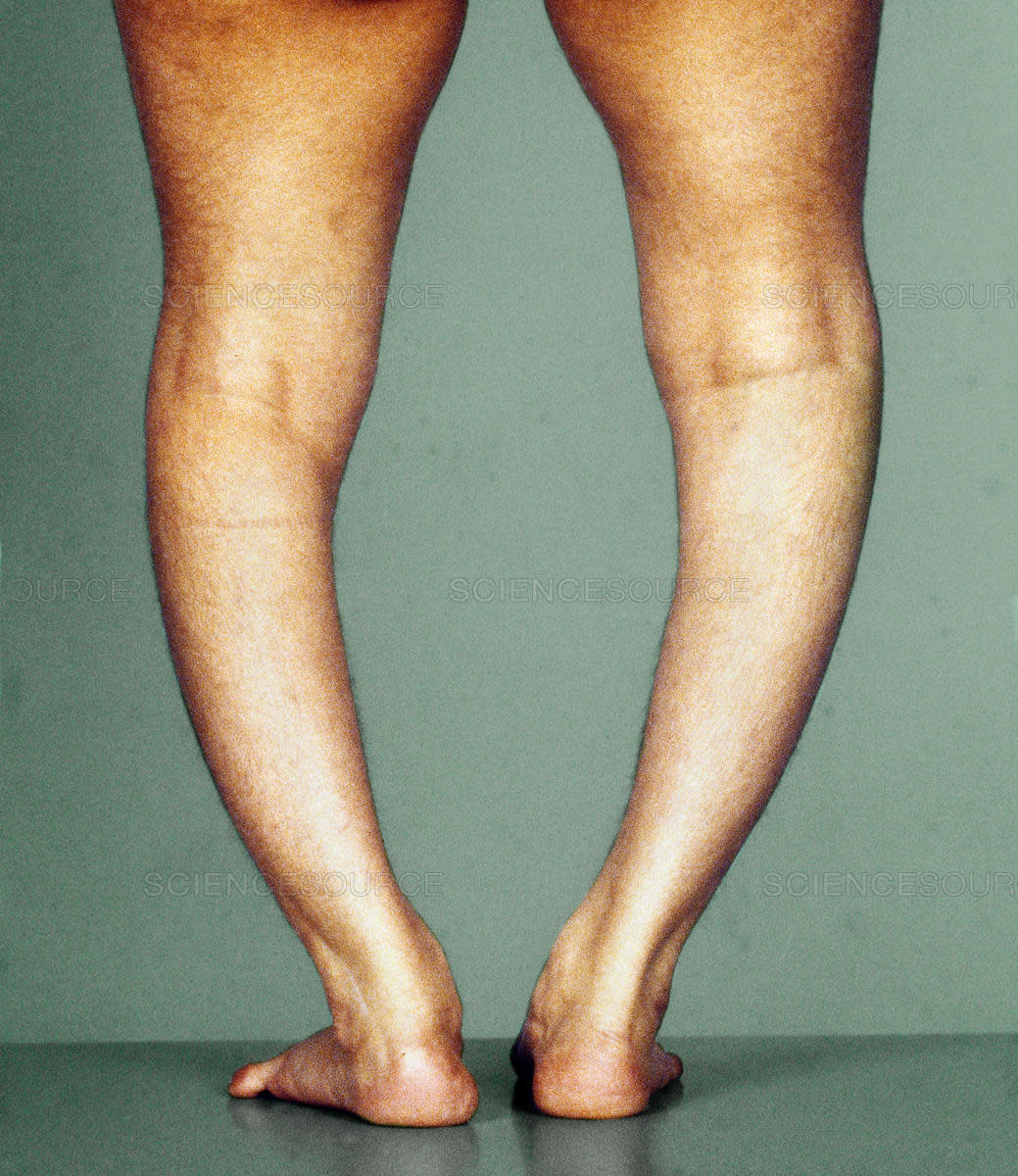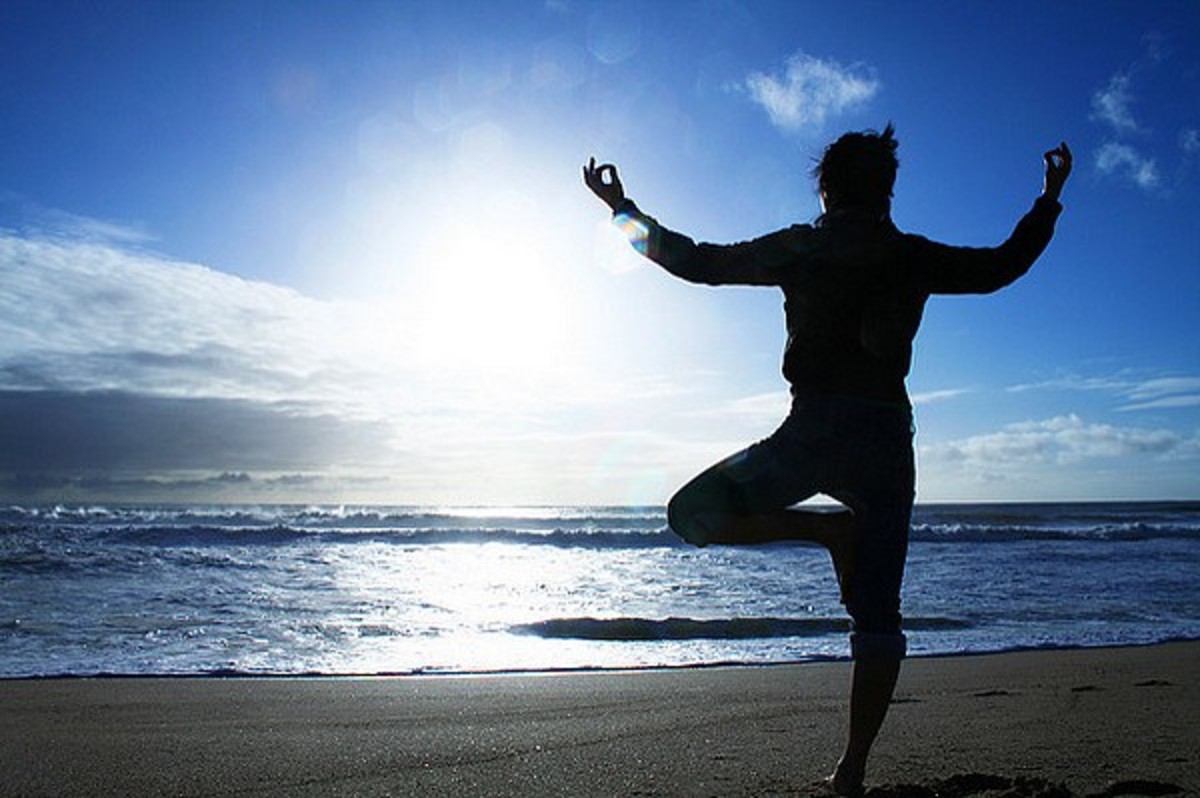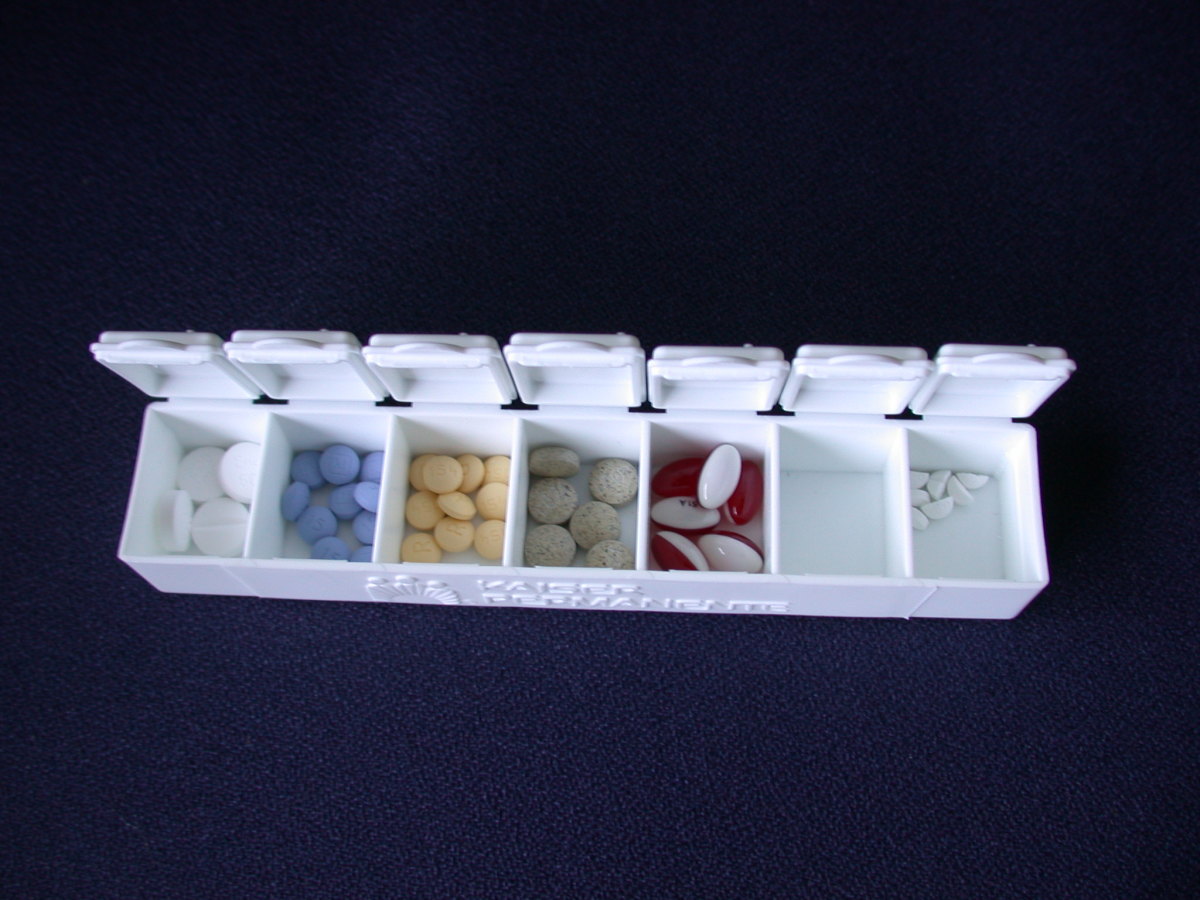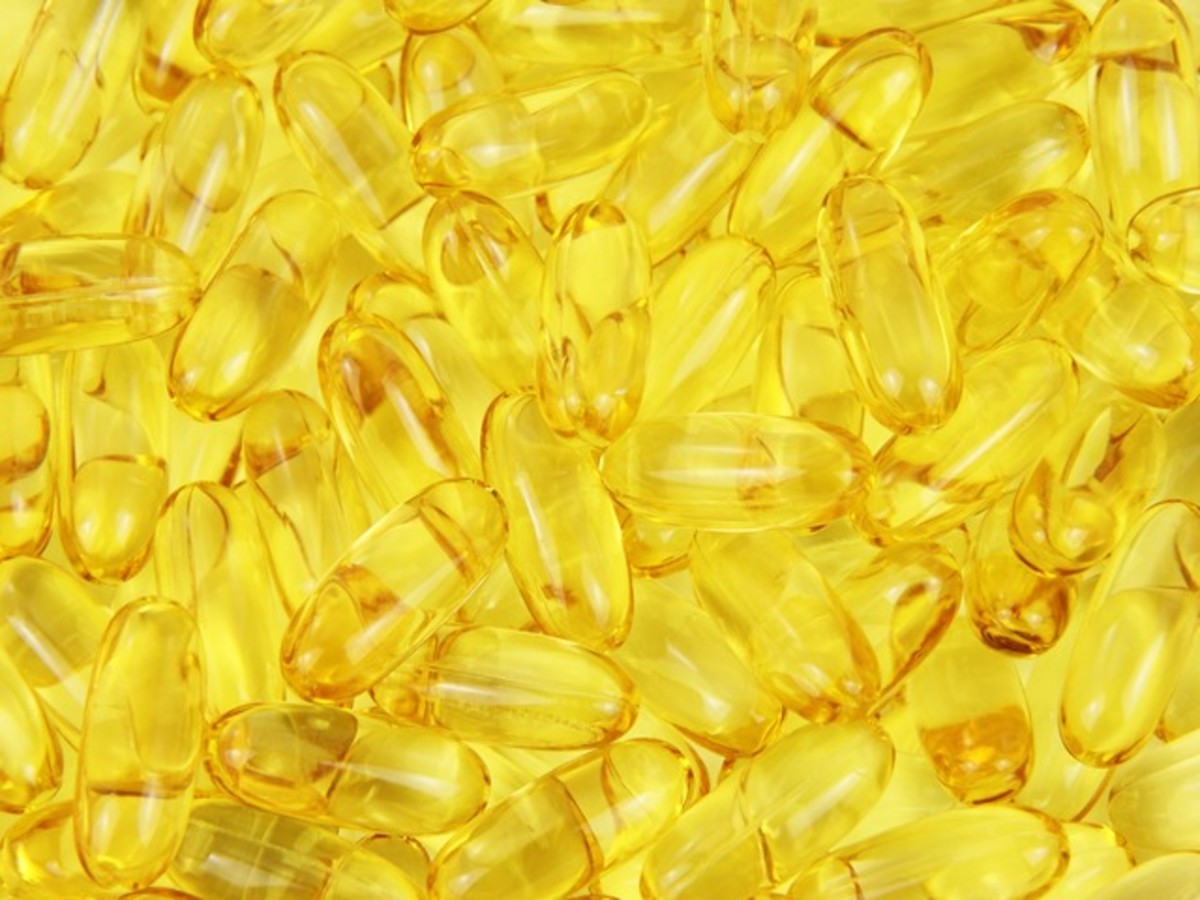How to Help Vitamin D3 Deficiency

Vitamin D Deficiency on the Rise
Vitamin D3 is important to our health. Vitamin D3 comes from the sun or supplements. The world is experiencing more and more health issues. The lack of vitamin D3 or cholecalciferol in our systems robs us of our immune system.
As we have become "wiser" about the sun, we have learned to avoid it for fear of skin cancer. We have sun screen and sun block lotions and sprays we apply to protect us from the sun's harmful rays, but at the same time we cut off the sun's beneficial vitamin D3. Being in the sun and using moderate common sense will help us avoid skin cancer and help us get the added vitamin D3 our bodies are craving.
Vitamin D3 deficiency has so many harmful effects. A closer look should be taken at how to stop this epidemic.
Is Worldwide Vitamin D Deficiency Going Too Far?
Vitamin D3 deficiency is a worldwide problem. This seems like an extreme statement, but how much sun do we get today? Through the mid 1980's people did not think too much about sunscreen and sunblock. Then the dreaded mention of melanoma, or skin cancer, put the fear of the sun into many of us. We slathered on sunscreen and sunblock hoping to avoid such a tragedy, which any form of cancer can be.
Also, many started looking at their aging skin, especially women. I know I started paying more attention in the 90's. Dry skin, wrinkles, freckles, and big age spots were a worst nightmare - again with the dramatics. I had already jumped on that bandwagon to protect my kids from the harsh rays of the sun when all the reports were coming out about sun damage and the devastating effects the sun could cause. These effects that may not show up for years. They never went without their 45 sunblock, but I still went into the sun unprotected. Not very wise, but I wanted that tan. Do you know anyone like that?
Vitamin D3 Deficiency Gets Real
Not only did we protect ourselves with sunscreens and sunblock, but we started spending more time inside. How many of us work inside? Most of us. Plus, those who live in the very northern or southern regions of our two hemispheres receive even less sun than those of us who live midway or closer to the Equator. No sun, less vitamin D3, and the problems started showing up.
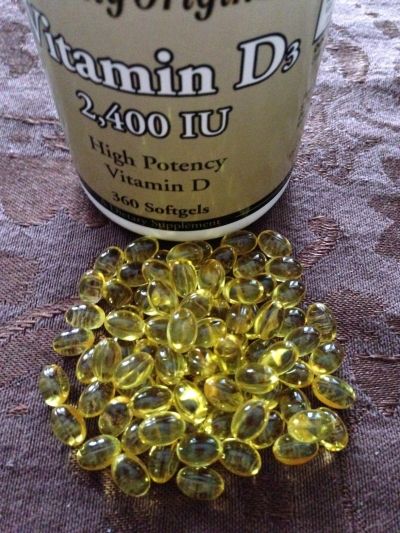
Symptoms of Vitamin D3 Deficiency
A friend of mine was not feeling well. Her doctor was concerned she had multiple sclerosis. She ached all over in her joints, bones, and muscles. She was tired all the time. She owns her own spa and worked all the time. I told her maybe she was just overworked, which we are sure was part of it. Then I began to notice it was dark in her spa. Everything was in a soft low light. She spent most of the day time in the spa.
Eventually, the doctors had run all kinds of tests and found nothing until they did more blood work. They found she had a major vitamin D3 deficiency. Her doctor put her on 50,000 IU prescription strength vitamin D3 for a couple of weeks. She began to feel better. All her symptoms are consistent with vitamin D3 deficiency, and once her D3 levels rose, her physical health began to improve.
Being in a the semi-dark, soft glow of her spa that made her customers feel so relaxed and good had taken its toll on her. The lack of sunshine had zapped her of her strength and made her feel terrible. It is no wonder that those who live farthest away from the Equator have health issues, such as depression, higher risks of multiple sclerosis, diabetes, cardiovascular disease, and even cancer.
Without the aid of vitamin D3, our immune systems plummet, and our bodies are not able to fight off minor physical conditions that can turn into major physical conditions that are life-threatening. The more we find out about vitamin D3 and the need for it, the more we are able to see the benefits of either the sun or maintaining vitamin D3 levels through a little sun, supplements, and/or diet.
Yet, a person may not experience any symptoms or if the symptoms are not obvious, the person may not recognize them. At first, my friend's doctors did not recognize the symptoms, and she was living in fear of having a life threatening, debilitating disease.
Not recognizing the vitamin D3 deficiency is the scary part. We should all be concerned about vitamin D3 deficiency and should inquire or do some research on it in order to protect ourselves.
Who is Most Likely to Have a Vitamin D3 Deficiency?
As mentioned earlier, those who live farthest away from the Equator and receive less sun are at risk of being deficient in vitamin D3, such as Canada and Alaska.
The elderly who are unable to get out like they did when they were younger. This may also contribute to depression. Also, as we grow older, our kidneys are not able to convert vitamin D3 into its active form. I did not know about vitamin D3 deficiency when my Mother was living. I see now that her depressions and kidney problems could have been caused by a vitamin D3 deficiency. I wish I had known about the research that has come out before her death in January of 2010.
Just like my mother who stayed inside too much, young children are at risk because they either stay inside too much or are slathered with sunblock each time they do go outside. This could be the case with adults, too. I know from the time my children were tiny until they were in their teens, I constantly preached "sunblock, sunblock, sunblock." They had no choice when they were little, but as they grew and worried about self-image, I saw them getting out the baby oil or the dark tanning number 4 sunscreen. By this time, I wasn't with them all the time, and they did what they wanted. Because of their "training" from a young age, they did put sunblock on after being in the sun for an extended amount of time.
For those who have a dark complexion, such as African-Americans, American Indians, or Mediterranean, the darker pigment in the skin reduces the skin's ability to absorb vitamin D3. My husband is Italian on one side and American Indian on the other side. He is very dark. He loves being outside. I have always worried about the sun's effects on him because he has refused to wear sunscreen or sunblock. As we have aged, he finally will apply sunblock after he has been in the sun for a while. For me, a very fair skinned person, I would be burned to a crisp if I were in the sun as long as he is. He has never had any issues with vitamin D3 deficiency that we know of. I can see if he were in the sun on and off that he might show some signs, but he seems to get the right amount of sun.
If you are obese, you are at risk of having a vitamin D3 deficiency. Fat cells take the vitamin D3 and stop its circulation through the blood. Vitamin D3 deficiency is only one of the health issues connected to obesity.
If you are a vegetarian, you may be depriving your body of vitamin D and D3. Most vitamin D in our foods is animal-based. Eating a strictly vegetarian diet eliminates these vitamin D sources. If you compound that with not getting the D3 from the sun or foods, a deficiency is going to occur.
How Does Vitamin D3 Help Us?
As alluded to above, vitamin D3 helps maintain healthy bone, joint, and muscle health, along with cutting down on the possibilities of osteoporosis, MS, and many other debilitating diseases.
Vitamin D3 helps to regulate the immune system so we can fight off bacteria and viruses, such as the common cold and sore throat.
The one benefit I like the most because I have not had much experience with the extreme effects for lack of vitamin D3 except this one: memory and concentration. Vitamin D3 helps your brain function better. I am middle-aged and have noticed my brain is not the sponge it once was. I began taking vitamin D3 supplements and including it in my diet, and I have noticed a difference in my memory and ability to concentrate.
Oh, the "pleasures" of getting old. I have a bit of arthritis in my back, and while it does not completely go away, it does feel better when I take vitamin D3 and/or am in the sun. I don't know about you, but I love sitting in the sun for at least 5 minutes. It has a reviving quality I now know is vitamin D.
Vitamin D3 has also been connected to slowing cancer cells down. That is a wonderful medical breakthrough if that can be proven. It is worth some research to find out more about the connection of vitamin D3 and prevention of or slowing down cancer.
There are so many benefits to taking vitamin D3 supplements. Not only are you replacing the vitamin D3 that the sun gives you, but you are helping such issues as depression, heart risks, improved skin health, improved muscle and bone health, and potentially, warding off some diseases including cancer and diabetes.
All of us should consult a physician to see if we are deficient in vitamin D3. Vitamin D3 is a vital part of our good health, but we should make sure it does not interfere with any medications or cause additional problems if we have other health problems.
Be sure to see a physician on a yearly basis and ask for a blood test to check vitamin D levels.
How Can We Get More Vitamin D3?
Some doctors may argue, but 10 - 15 minutes sitting in the sun, allowing our face, chest, and arms to absorb vitamin D3 would be helpful to our body's immune system. If you feel the sun is too hot, do not sit in its strong rays too long. Be sure to time how long you are in the sun and if you plan to stay in the sun, do apply sunblock after getting a "dose" of the sun's vitaminD3.
Some controversial doctors have stated that lying in a tanning bed for 5 minutes will help activate vitamin D3. Doing so during the cooler months or when the sun is lower on the horizon could help you feel better.
We must eat the few foods that are rich in vitamin D3, such as salmon, tuna, mackerel, beef liver, cheese, and egg yolks. If you have heart problems, please check with your doctor before adding anything to your diet.
Take vitamin D3 supplements, either vitamin D3 or in Omega-rich fish oils.
Disclaimer:
Susan Holland is not a physician. Before taking any measures to help a vitamin D3 deficiency, consult a physician, especially if you have a pre-existing medical condition. Since vitamin D helps increase our calcium if you are prone to kidney stones, you will definitely want to consult a physician.
© 2018 Susan Holland


